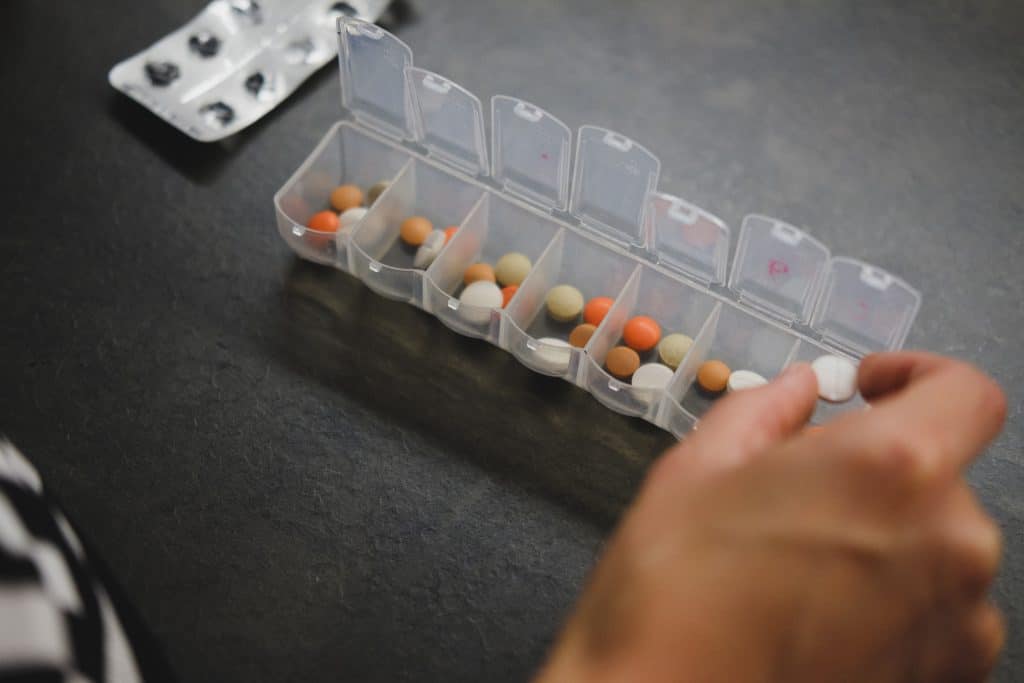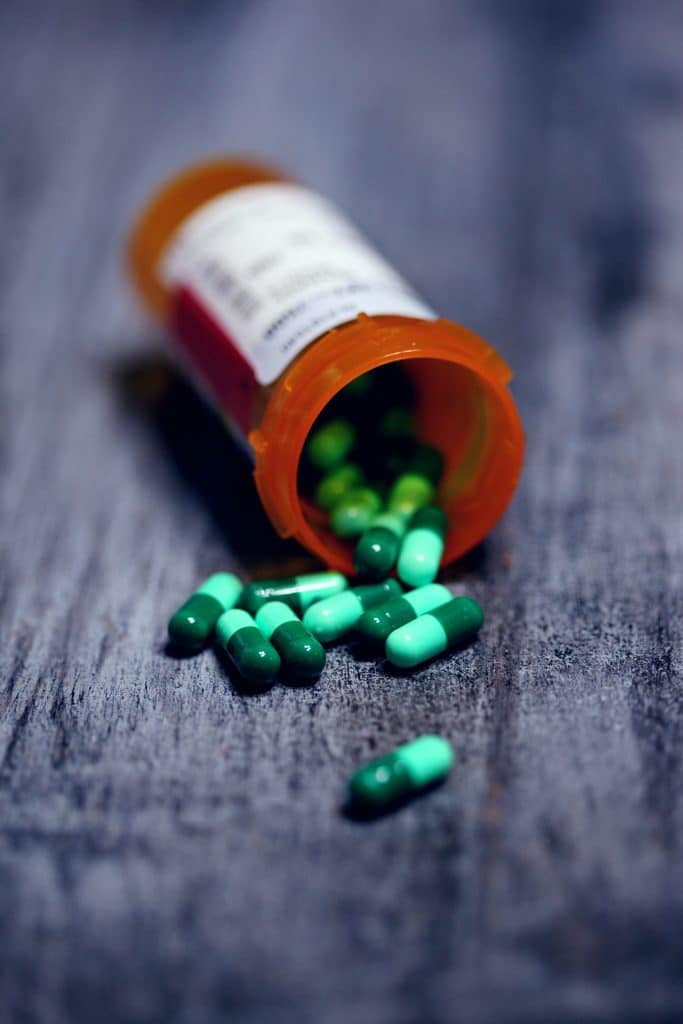OCD, or Obsessive Compulsive Disorder, is a prevalent condition comprising repetitive behaviors and intrusive thoughts. It affects two to three million adults in America alone and, as of yet, does not have an absolute cure.
However, several treatment methods like lifestyle modifications, counseling, stimulatory therapies like DBS and TMS, and medical therapy can help manage the symptoms.
In this article, we discuss the role of OTC and prescription supplements in relation to OCD, their respective efficacy, and their side effects.
What Is OCD?
OCD is a mental health disorder that causes compulsive behaviors in individuals. This can range from a person being irrational about general symmetry in their surroundings, unwanted intrusive thoughts, doubts, having excessive fear associated with religion /morality, etc.
Genetics is the most commonly identified cause of OCD. According to research, having a family history of the condition increases your risk of developing OCD by almost 48%.
Other than that, here are some other factors that may contribute to the development of OCD:
- Physical, emotional, and sexual abuse
- Disruption /fluctuation in levels of reproductive hormones
- Use of antipsychotics
OCD is marked by low levels of serotonin (a feel-good hormone) and dopamine (a happy hormone), which explains sudden mood swings. Therefore, most medicines are made to adequately improve the levels of these neurotransmitters.
OTC Medicines For OCD
While OCD patients tend to self-administer multiple OTC medicines, here are four used most commonly:

Vitamin B12
Vitamin B12 is a compound naturally present in animal-origin food. Inside the body, it acts as a cofactor for the synthesis of essential neurotransmitters like serotonin and dopamine. Therefore, Vitamin B12 deficiency is often associated with OCD, other psychiatric illnesses, and cognitive dysfunction.
B12 is considered an effective treatment for OCD. However, its use can manifest side effects like headache, nausea, vomiting, diarrhea, and lethargy.
Folic Acid
The natural form of Vitamin B9, folate, and folic acid is an OTC, synthetic supplement of folate.
Folate is important for serotonin synthesis, which is why it is used for OCD. Side effects of overdose include nausea, loss of appetite, and bloating.
5-Hydroxy L-Tryptophan
Tryptophan is an amino acid that also serves as a precursor for serotonin and melatonin. While serotonin regulates mood, melatonin looks over the sleep-wake cycle.
Since OCD is a mood disorder that also involves insomnia, the administration of 5-hydroxy L-tryptophan or 5-HTP can relieve OCD.
However, it is crucial to mention that some scientists consider the available evidence (regarding the benefit of the supplement in relation to OCD) insufficient. Therefore, doctors are often divided on recommending 5-HTP to OCD patients.
Side effects include nausea, dizziness, dry mouth, headache, and loss of satiety.
Glycine
Glycine is a neurotransmitter that is synthesized naturally in the body but is also sourced from food like chicken, turkey, pork, and seeds.
Research shows that glycine treatment over the span of 5 years leads to a significant reduction in OCD symptoms. Up to 60 grams daily dosage of glycine has been used in the long-term study (case report) on OCD patients. This dose has proven effective.
The supplement’s use can lead to general systemic side effects like nausea, diarrhea, and drowsiness.
Vitamin D
Low amounts of Vitamin D in the body decrease the tryptophan, which directly interferes with serotonin synthesis. Therefore, Vitamin D deficiency naturally exacerbates OCD symptoms.
Multiple OTC Vitamin D tablets are consumed by OCD patients to ease their symptoms. However, this carries a risk of certain side effects like constipation, nausea, vomiting, weight loss, and poor appetite.
Prescription Medicines
Now that we have covered OTC supplements for OCD, their potential in treating the condition, and their side effects, here are some of the best prescription drugs available for OCD:
- Clomipramine
- Fluvoxamine
- Paroxetine
- Sertraline
- Fluoxetine
- Citalopram
While these are the most reliable drugs for OCD, other symptom-specific antipsychotics are also prescribed to OCD patients.

Side Effects
Although all prescription drugs undergo a thorough testing process and have shown promising results in OCD treatment, they are also associated with several side effects:
- Fluvoxamine may cause drowsiness and dry mouth
- Paroxetine may lead to difficulty in concentration, confusion, dizziness, forgetfulness
- Sertraline and Citalopram might result in headaches, diarrhea, drowsiness
- Missing doses can lead to withdrawal symptoms due to physical dependency
Things To Discuss With Your Doctor
When visiting a doctor for a prescription of OCD medicines, here are a few things to remember:
- When giving the history of your symptoms, always be thorough and truthful. Your treatment plan will be specific to the signs associated with your condition. While the doctor might consider giving low-dose medicines, some OCD symptoms can be resolved with professional counseling.
- Discuss any other medications you’re taking or health conditions that you may have.
- If you have a substance-abuse problem, make sure to mention it, as the interaction between certain drugs can cause disastrous effects.
- Make sure the treatment plan is convenient for you, i.e., you can easily comply with it.
OTC vs Prescription Drugs: Which Is Better?
While OTC medicines can help with mild forms of OCD or give you temporary relief from certain symptoms, they are not a permanent solution. Although the condition has no cure, early diagnosis and compliance with an adequate treatment plan can help you overcome compulsive actions and intrusive thoughts.
The aim of medical treatment is always to achieve maximum results with minimal dosage. Given that the first line of treatment of OCD is always counseling (of the patient as well as their families), your doctor won’t switch to medicines unless absolutely necessary.
Both OTC and prescription medication have side effects, and therefore, it is better to always consult your doctor, even if you want to stick to OTC supplements.
Conclusion
OCD is a common disorder that often goes undiagnosed. The repetitive behavioral patterns can make it difficult for the affected individuals to navigate their way around day-to-day activities.
With a myriad of treatment options available, you can work through the problem, and you don’t have to combat the overwhelming thoughts alone. Reaching out to your friends, family, and certified professionals can play a huge role in helping you live normally.














Leave a Reply